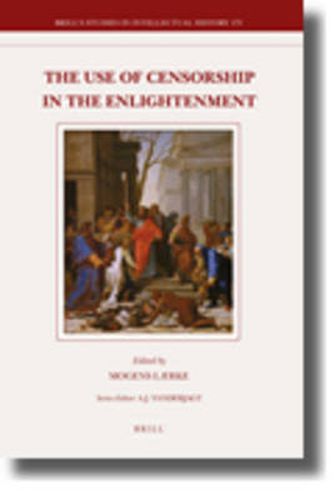Readings Newsletter
Become a Readings Member to make your shopping experience even easier.
Sign in or sign up for free!
You’re not far away from qualifying for FREE standard shipping within Australia
You’ve qualified for FREE standard shipping within Australia
The cart is loading…






The ambition is of this volume to study the role censorship played in the intellectual culture of the seventeenth and eighteenth centuries, how it was implemented, and how it affected the development philosophy and literary writing. It contains contributions by intellectual historians, philosophers and literary theorists. The first section studies how Enlightenment thinkers were submitted to censorship, in particular the German Spinozists, Pierre Bayle, and the French Encylopedists. The second section on the institutional aspects of censorship contains an analysis of the breakdown of censorship in England around 1640 and a discussion of the impact of censorship on philosophy in the Netherlands. The final section studies the stand three Enlightenment thinkers, namely John Toland, Denis Diderot, and G. W. Leibniz, took on the issue of censorship.
$9.00 standard shipping within Australia
FREE standard shipping within Australia for orders over $100.00
Express & International shipping calculated at checkout
The ambition is of this volume to study the role censorship played in the intellectual culture of the seventeenth and eighteenth centuries, how it was implemented, and how it affected the development philosophy and literary writing. It contains contributions by intellectual historians, philosophers and literary theorists. The first section studies how Enlightenment thinkers were submitted to censorship, in particular the German Spinozists, Pierre Bayle, and the French Encylopedists. The second section on the institutional aspects of censorship contains an analysis of the breakdown of censorship in England around 1640 and a discussion of the impact of censorship on philosophy in the Netherlands. The final section studies the stand three Enlightenment thinkers, namely John Toland, Denis Diderot, and G. W. Leibniz, took on the issue of censorship.